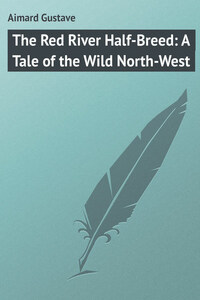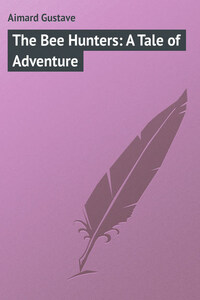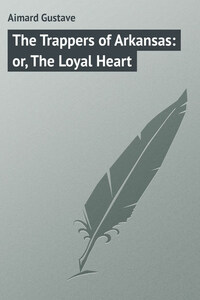CHAPTER I
THE CREST OF THE CONTINENT
We stand on the loftiest peak of the Big Wind River Mountains, that highest and longest chain of the Northern Rockies, a chaos of granite fifteen thousand feet towards the firmament from the sea.
Around us the lesser pinnacles hold up heads as fantastic in shape as an Indian's plumed for battle, and, below a little, diamonds of ice deck the snowy ermine of the colossal giant's robe.
Far beneath, the mosses are grown upon by sparse grasses, and they by scrub evergreens, gradually displaced in the descent to the warm alcoved valleys by taller and taller pines, spruce, larch, and cedar. But the ancient ocean wash here shows lines alone of the constant west and southwest winds, which never bring a seed or grain into this calm frigidity.
In the placid afternoon, the beats are audible of the wings of the king of the air, that proud eagle which Milton chose as the finest emblem of the American people who, in their vigorous youth, had lit their eyes in the unclouded sunbeams; and the song of the Arctic bluebird, startled by the unwonted squeaking of the dry ice powder intermixed with ground fossils and granite, as horses in the uneven line of a new and breakneck trail crunch antediluvian shells to atoms as they follow a daring man up the heights along chasms of ten thousand feet, from the western acclivity to the actual summit divide, not two yards wide.
It was November, a time when the almost impossible crossing was alone in the power of man, since in the thaws of summer the ravines are choke full of resistless water, and, later, the snowstorms are overwhelming.
The guide of the little train stood on the monstrous pedestal, firm and unblenching as a statue, and contemplated with an impassioned but unflinching eye the sublime spectacle four hundred miles in diameter. Like the jags of a necklace, the peaks of the sierra protruded, and like gems glittered the pure lakes of the mountain tops, those that feed to both hands the western and eastern rivers: towards the Pole, the Athabasca's Devil's Punchbowl, and the Two-world Pond under our eyes, into which the salmon trout leap from the Orient, and flash down into the Missouri for the Mexican Gulf!
Like steps of an immense staircase, the Plains of the Missouri, Cheyenne, and Laramie extended, monotonous, drying up the mountain flow in insatiate rocks and sands, and heaving up stone barriers to the prairie ocean. Like a thin thread of water gleams the rails of the Pacific Railroad, twenty thousand miles of metal over which the dolefully hooting steam engine capers to connect the Iron and Coal States with those of Gold and Corn.
But the presumptuous pigmy soon ceases to be impressed with the grandeur and the magnificence, and lets an admiring glance dwell on the shining face of the never-freezing Lake of the Yellowstone Valley, and seems to feel no such awe as an Indian would have at viewing the inimitable hues and fanciful wreaths of smoke which overhung the mysterious Firehole Basin – the Geyser land of the scientific, the haunt of the red man's demons and gods.
"Huh-la!" he cries to the horses and mules, and up they come in his dauntless footsteps, and, the loads telling on them in the rarity of the air, gladly snicker as they take the downward path at last, spite of the peril.
Sunset impends, and the adventurer still urges the train till the last arrival appears, goaded by a second pioneer, who seems of Indian blood.
The two men silently exchange a grasp of the hand, as if their task were nearly accomplished, and plunge into the darkness, commencing to climb the steeps as they commence what appears a mad descent. The stony spires and domes glow like orange shaded lamps at a Chinese festival along the chain for hundreds of miles, and, after one moment of mezzotint, so scant is the twilight here, the stars of the Great Bear stand out sparkling so near and so detached in the dark blue ether, that the sound of the auroral lights dancing seems the crackle of the orbs' own axles.
Surely it is worth while to follow two men so daring as to surmount the greatest obstacle of Nature, and who carry themselves as if they, and not the grizzly bear and eagle, were monarchs of this weird domain.
CHAPTER II
THE FALSE PILOT
To the north of the trappers, approaching, but out of their reach of vision, a singular train was skimming over the snows. From a distance one might have supposed it a flight of birds, for no four-footed creatures could have travelled at that surprising pace.
But it was a procession of carrioles, or dog sledges, preceded by two large ones. These were impelled by the wind alone, caught in sails, which would be the tent canvas by night, fastened to masts set in the breadth of the beam like that of an "ice yacht." The runners, on the principle of a mail coach's, shoes were formed of thin wood turned up in front; their width prevented the sledges sinking materially. But the speed was what saved them better from being submerged in the twenty-five feet dead level snow. Moreover, the steersmen, so to call them, of the queer craft, were both fitted for their posts. The second sledge was governed, thanks to the adroit manipulation of a tough pole, by one of those Scotch-Americans who are the indisputable rulers of the Northwest. At the cold they never wince; they are sober, prudent, rather silent than talkative, as firm as a rock in defence, and as trusty as a dog.














